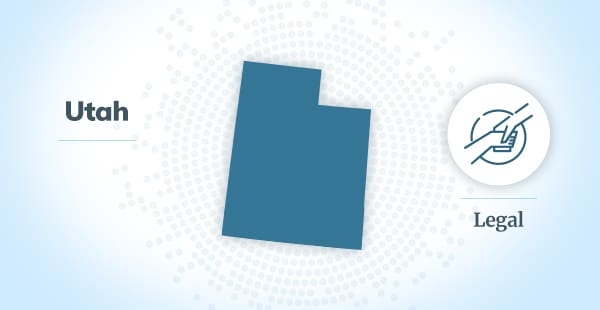01. Utah Law Firms
Top Mesothelioma Law Firms in Utah
Mesothelioma law firms can help Utah residents and workers exposed to asbestos. Experienced lawyers at these law firms represent people with asbestos-related diseases during lawsuits. These lawsuits can lead to compensation from verdicts and settlements.
The following law firms can help people living in Utah seek compensation:
Mesothelioma lawyers understand Utah and national asbestos laws. They also have resources to help find potential sources of asbestos exposure. Many people do not know how or when they experienced exposure because asbestos diseases can take a long time to develop.
Lawyers research clients’ cases and offer the most beneficial options. After research, lawyers may file a lawsuit in Utah or another state. The best place to file will depend on the facts of an individual’s case.
Asbestos lawyers can travel to their clients to meet with them at their homes. This added convenience lets clients focus on mesothelioma treatments and time with loved ones.
Resources for Mesothelioma Patients
02. Filing Lawsuits in Utah
Filing Mesothelioma Lawsuits in Utah
Mesothelioma lawyers can help people exposed to asbestos file lawsuits when they develop a related disease. Before the 1980s, many industries used asbestos because it is durable and resists heat. This caused a lot of past exposures, but Utah has many places where people could still be exposed to asbestos.
Anyone exposed to asbestos may develop diseases like mesothelioma or other cancers. Between 1999 and 2020, Utah had more than 400 new mesothelioma diagnoses. During that time, at least 335 people in the state died from the disease. Residents affected by mesothelioma continue to file lawsuits to seek compensation for their injuries.
Who Is Eligible to File a Mesothelioma Lawsuit in Utah?
Utahans may be able to file lawsuits after they develop asbestos-related diseases. Family members of someone with an asbestos disease may be eligible for compensation as well.
The oil and gas industry used asbestos as insulation, in gaskets and elsewhere. In Utah, workers at one of the five refineries near Salt Lake City may have faced exposure from one of these sources. The oil and gas industry had a total revenue of more than $20 billion in 2022 and still faces potentially billions in asbestos liabilities. This industry currently employs more than 7,400 people.
The construction, mining and utilities industries also have occupations at risk for asbestos exposure. Utah has more than 150,000 workers in these industries.
Some notable asbestos jobsites in Utah include:
Utah residents living in the following cities have filed mesothelioma lawsuits:
- Bountiful, UT
- Helper, UT
- Holden, UT
- Hooper, UT
- Kearns, UT
- Murray, UT
- Ogden, UT
- Salt Lake City, UT
- South Jordan, UT
- St. George, UT
- Tooele, UT
- Washington, UT
- West Haven, UT
- West Jordan, UT
- West Valley City, UT
Deadlines for Filing a Mesothelioma Lawsuit in Utah
Utah’s statutes of limitations set timelines for filing mesothelioma lawsuits. These timelines vary for the type of lawsuit and may differ from timelines in other states.
The two relevant statutes of limitations cover personal injury and wrongful death lawsuits. Lawyers file personal injury lawsuits on behalf of people who develop asbestos diseases. Wrongful death lawsuits are filed on behalf of the families of those who have died from mesothelioma.
Mesothelioma lawyers can explain how these statutes affect cases.
Lawyers will work with asbestos victims and their families to find all sources of compensation. Other sources may include asbestos trust fund claims. Bankrupt asbestos companies put money into trusts to pay for current and future asbestos liabilities.
Veterans and their families may qualify for benefits. The U.S. Department of Veterans Affairs (VA) has benefits for veterans and their families affected by service-related mesothelioma. Asbestos lawyers can help them file VA claims.
03. Utah Settlements & Verdicts
Mesothelioma Settlements in Utah
Some mesothelioma lawsuits end in settlements. Settlements happen when victims (plaintiffs) agree to end a lawsuit against an asbestos company for a sum of money. These agreements can happen at any time during a lawsuit.
Plaintiffs can use mesothelioma settlements in many ways. The money can help pay for medical bills, lost income and transportation to medical treatment.
Some settlements in Utah include:
- $4 million for a 59-year-old Army veteran and smelter
- $3.1 million for a 60-year-old carpenter and mechanic
- $2.8 million for a 78-year-old boiler worker and welder
- $2.2 million for a 73-year-old Navy veteran, railroad worker and at-home mechanic
- $1.6 million for a 72-year-old construction worker and automotive business owner
- $1.5 million for a 77-year-old Navy veteran (Brooklyn Navy Yard) and mechanic
- $1.5 million for a 74-year-old carpenter and millwright
- $1.4 million for a 78-year-old Army veteran and drywall worker
- $1.2 million for a 58-year-old Marine veteran and union ironworker
Mesothelioma Verdicts in Utah
Mesothelioma lawsuits in Utah may end in verdicts. Verdicts are decisions made by a judge or jury about the facts of the case and how to apply the law to them.
Some verdicts in Utah have resulted in millions of dollars in compensation for asbestos victims. For example, one lawsuit awarded a Clearfield woman with peritoneal mesothelioma $5.2 million.
The woman used to help her father build homes where she cleaned up dust from joint compounds used to smooth drywall. In 2010, the woman sued Georgia-Pacific Corporation and Hamilton Materials Inc. The jury found both Georgia-Pacific and Hamilton Materials produced defective products.
Note: Each lawsuit is different, and prior results do not guarantee a similar outcome in the future. Contact a reputable Utah mesothelioma lawyer to understand how much compensation you may be eligible to receive.
04. Asbestos Laws in Utah
Utah Asbestos Laws & Regulations
Utah follows federal asbestos regulations and has asbestos laws in the Utah Code. These codes give the Utah Department of Environmental Quality (DEQ)’s Division of Air Quality (DAQ) oversight of the state’s asbestos program.
The DAQ enforces two national rules. One is the National Emission Standards for Hazardous Air Pollutants (NESHAP), which specifies work practices for asbestos projects. The other is the Asbestos Hazard Emergency Response Act (AHERA), which regulates asbestos in schools.
The DAQ also enforces state regulations and work practices found in Utah’s Asbestos Rules. The Asbestos Rules include:
- Company certification: The DAQ requires that all companies are certified to perform asbestos work. This work may include abatement, inspections and more.
- Individual certification: The DAQ certifies individuals who work on asbestos projects. People required to have certification include inspectors, renovators and more.
- Training: The DAQ oversees training requirements. The Utah Asbestos Rule outlines specific training course requirements.
- Waste: The DAQ manages the rules for asbestos waste management. The Utah Asbestos Rule outlines regulations for owners and operators of regulated facilities.
Utah Laws Affecting Asbestos Litigation
Utah’s courts and legislature have set standards for asbestos lawsuits. These standards can affect a plaintiff’s mesothelioma case. Examples of statutes included in the Utah Code affect:
Sometimes, court cases affect future mesothelioma lawsuits. Examples of what the decisions may affect include:
- Emotional distress: In 1993, a court ruled plaintiffs can claim negligent inflicted emotional distress. This created the potential for victims to receive compensation for fear of developing an asbestos disease.
- Medical monitoring: The same 1993 case also set a standard for medical monitoring. The court determined plaintiffs can seek compensation for the costs of medical monitoring.
- Personal injury and wrongful death lawsuits: During a court case in 2015, Utah determined a verdict in favor of a plaintiff in a personal injury suit does not bar the family from suing for wrongful death later.
- Secondary exposure: In 2013, the court faced a case dealing with secondary exposure. The court noted companies are responsible when they introduce asbestos into the workplace. If they do and it creates a foreseeable risk to the families, they may be held liable for asbestos illnesses caused by secondary exposure.
A mesothelioma lawyer can explain how these decisions may affect a mesothelioma case.










